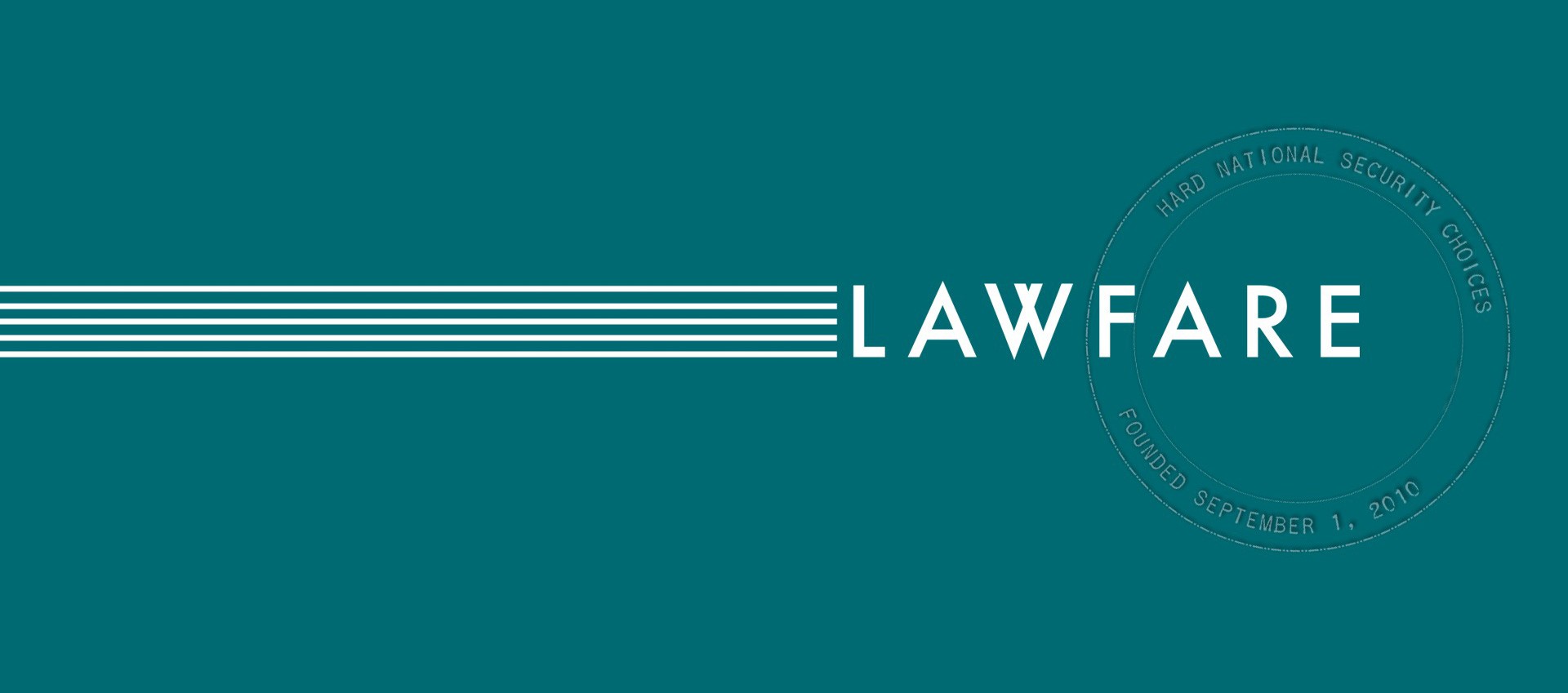The Week That Was: All of Lawfare in One Post
Your weekly summary of everything on the site.

Published by The Lawfare Institute
in Cooperation With

Benjamin Wittes sat down with Alina Polyakova on the Lawfare Podcast to discuss the war in Ukraine and its impacts on the international community one year after Russia’s full-scale invasion.
Quinta Jurecic, Alan Rozenshtein, and Wittes reflected on the oral arguments delivered this week in Gonzalez v. Google and Twitter v. Taamneh. They also discussed the likelihood of Section 230 reform as a result of the cases.
Scott R. Anderson, Jurecic, Rozenshtein, and Wittes sat down for an episode of the Lawfare Podcast to discuss oral arguments in Gonzalez v. Google and Twitter v. Taamneh, two pivotal Supreme Court cases regarding platforms’ liability for their hosted content.
Brandon Broukhim, Brad Carney, and Sasa Javonovic provided an overview of Gonzales v. Google and Twitter v. Taamneh.
On this week’s episode of Rational Security, Anderson, Jurecic, and Rozenshtein sat down to discuss the week’s big national security news stories, including the one-year-mark of the war in Ukraine, Supreme Court cases Gonzales and Taamneh, Dominion Voting Systems’ lawsuit against Fox News, and more.
Matt Perault analyzed current speech liability protections’ implications for generative AIs like ChatGPT. He found that current law, including Section 230, does not shield AI-generated content from liability in the same way user-generated content has been protected, and considered the options regulators have in the space going forward.
Amichai Cohen and Yuval Shany concluded their six-part series on the new Israeli government’s proposed legal reforms. In part six, Cohen and Shany surveyed the current status of the majority coalition’s attempts at rapid reform amid widespread protest and counter-proposals, and the ramifications for Israeli democracy. In part five, they considered the importance of “reasonableness review” in the Israeli justice system, both as a mechanism for balancing state power and an instrument for judicial overreach. Cohen and Shany discussed how proposals for Israeli judicial reform would dramatically weaken the reasonableness doctrine. In part four, they analyzed the proposals’ impact on government legal advisors, up to and including the attorney general.
Aman George, Peter M. Shane, Jeffrey B. Dubner, Sarah Goetz, and Orlando Economos laid out a defense of the Biden administration’s debt relief program, expanding on the reasoning of the amicus brief they filed in Biden v. Nebraska and Department of Education v. Brown—two cases challenging the administration’s authority to cancel student debt in response to the COVID-19 national emergency.
Kevin Frazier examined how state courts are increasingly politicized, and delineated the negative implications of highly partisan, contentious elections on the rule of law and maintenance of court rulings.
On this week’s episode of Chatter, Shane Harris sat down with journalist (and pilot) James Fallows to discuss some near-misses in aviation history, the risks of our overburdened civilian aviation system, the Chinese spy balloon incident, and more.
Tyler McBrien shared a Conventional Arms Transfer policy memo release by the Biden Administration. The new arms transfer guidelines raise standards for weapon sales to nations with a history of human rights abuse.
On an episode of the Lawfare Podcast, David Kris and Bryan Cunningham sat down with former National Cyber Director Chris Inglis for Inglis’ first interview since resigning from the position on Feb. 15. They discussed the newly minted National Cyber Strategy, the protection of critical infrastructure, international competition, and more.
Matthew Wein advocated for the creation of “strategic intelligence hubs” (SIHs) within the Department of Homeland Security,to streamline cybersecurity initiatives and more effectively coordinate activities of specialized components within the Department.
Jurecic and Molly Reynolds sat down with Eric Columbus and Mike Stern for an episode the Lawfare Podcast to discuss whether a clause, which ensures immunity for legislators during congressional proceedings, may protect Pence from responding to a subpoena served by Special Counsel Jack Smith’s investigation into the Jan. 6 insurrection.
Mark Graber dissected the 14th amendment, and evaluated whether it could be used to disqualify Trump from holding the presidency a second time.
And McBrien shared a court order in which a federal judge denied a motion submitted by families of 9/11 victims to collect damages from assets of Da Afghanistan Bank, which were frozen after the Taliban seized control of the country in 2021.
And that was the week that was.



